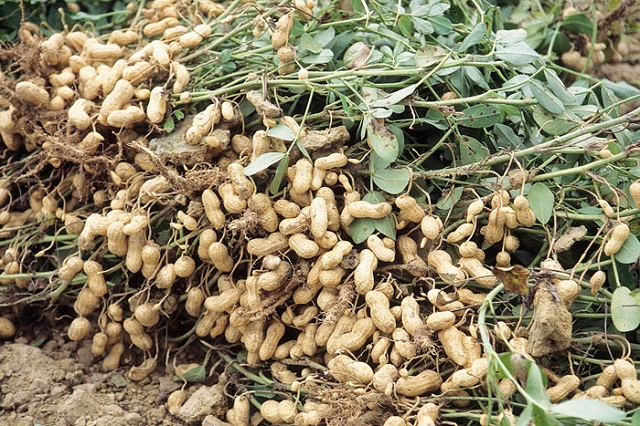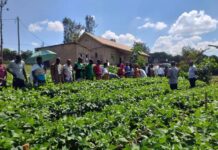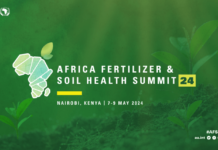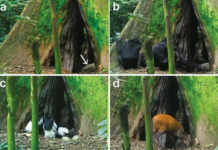By: Nqobile Bhepe, Zimbabwe,Bulawayo
Zimbabwe’s groundnut production is expected to increase as a lucrative market is opening up in South Africa.
Groundnuts in Zimbabwe are mostly grown for domestic by small rural farmers who are responsible for producing about 75% of the groundnuts and they use mainly Spanish cultivars that are grown in light soils.
Few farmers take up commercial cultivation.
However, that might soon change with reports that Agriculture Rural Development Authority (ARDA) has secured an order from South Africa.
According to the parastatal’s head, Basil Nyabadza, exports are due to kick off during this month of February.
An initial order deal has been sealed.
“For the first time in six years, we are exporting groundnuts starting this February” said Nyabadza as quoted by local media.
“We have secured an order from South Africa and are already processing plus or minus 2 000 tonnes”.
In 2017, Ministry of Agriculture official expected production to increase from 74 000 tonnes in 2016 to 148 000 tonnes.
Groundnuts remain a major source of livelihood, sustaining many families directly through farming and indirectly through peanut butter-making.
However, production of groundnuts has continued to be low over the years, largely owing to the disconnect between the missing seed system and non functional grain value chains.
Lack of vital knowledge on cross-breeding, varieties ideal for different climatic regions and extension also services remain a challenge for small holder farmers.
The tradition of exchanging seed varieties is still strong among farmers.
Irrigation facilities in dry areas could boost production while more value addition initiatives would also improve revenue generated from the crop.
Common varieties in Zimbabwe are Kasawaya, Chinzungwana, Tumbe or Chimhandara.
The resumption of exports by ARDA could regenerate interest among farmers to venture into commercial production.
ARDA was established soon after Independence in 1981 to plan, coordinate, implement, promote and assist with agricultural development in Zimbabwe.
The company was given ownership over a number of properties around the country and entered into lease agreements with the local authorities to develop and farm the land in line with its mandate.
However, ARDA, which owns 21 estates around the country was on the evrge of collapse due to several operational challenges.
Of late it has been in a retooling drive, actively looking for partnerships to improve output.
It embarked on a turnaround programme which entailed courting investors to revive business on its estates, which had collapsed during the hyperinflationary period.
The revival strategy was also meant to ensure that the company pursues a vibrant social responsibility agenda for the benefit of the rural population.









